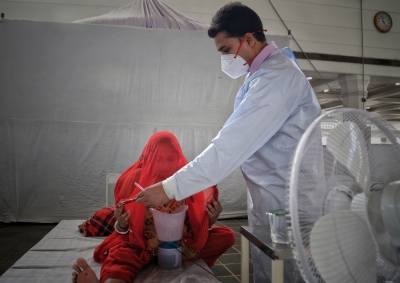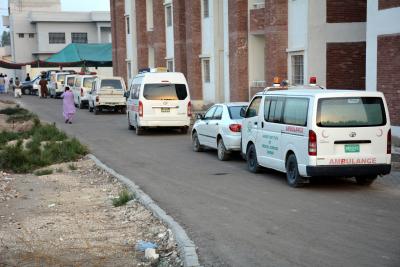
London, Jan 24 (IANS) Measles cases are rising alarmingly across Europe, warned the World Health Organization (WHO), stressing the need for vaccination.
More than 30,000 measles cases were reported by 40 of the WHO European region’s 53 member states between January and October in 2023, compared to 941 cases in 2022, a 30-fold rise, the Euronews reported.
In addition to the increase in the number of cases, hospitalisation has spiked with 21,000 people admitted to hospitals and five measles-related deaths.
The numbers are expected to continually rise if urgent measures are not taken to prevent further spread, the WHO said.
The virus practically disappeared in Europe during the COVID-19 lockdowns, but “the overall number of measles cases in the EU/EEA has been steadily increasing since June 2023,” the European Centre for Disease Prevention and Control (ECDC) said in its latest weekly threats report.
Romania, which has seen deaths due to measles in four unvaccinated people — three babies and one adult — since December, is on red alert, according to local media.
The country’s National Institute of Public Health confirmed 2,805 cases of the virus in Romania last year.
Austria has seen almost 200 cases of measles since the beginning of 2023. By mid-November, 64 cases were confirmed in France, two of which had to be hospitalised, the regional health agency reported.
Germany recorded 57 cases last year, which was higher than in 2022 but lower than pre-pandemic levels, the report said.
The cases come as vaccination coverage is “suboptimal”, the ECDC said. The latest data from the ECDC show that coverage for the second dose in 2022 was around 89.7 per cent.
Meanwhile, the UK’s health agency declared a “national incident” over an outbreak in central England. The UK Health Security Agency (UKHSA), has recorded 216 confirmed measles cases and 103 probable cases in the West Midlands since October 2023, the majority being in children aged under 10.
“With vaccine uptake in some communities so low, there is now a very real risk of seeing the virus spread in other towns and cities,” said Jenny Harries, chief executive of the UKHSA.
She stressed the importance of getting two doses of the measles, mumps and rubella (MMR) vaccine for lifelong protection, adding that “it’s never too late to catch up”.
“Children who get measles can be very poorly and some will suffer life-changing complications. The best way for parents to protect their children from measles is the MMR vaccine,” Harries said.
Measles is a highly contagious viral illness that spreads easily when an infected person breathes, coughs or sneezes, according to the WHO, and “can cause severe disease, complications, and even death”.
The virus is most common in children. Symptoms may include high fever, cough, runny nose and rashes.
–IANS
rvt/rad




